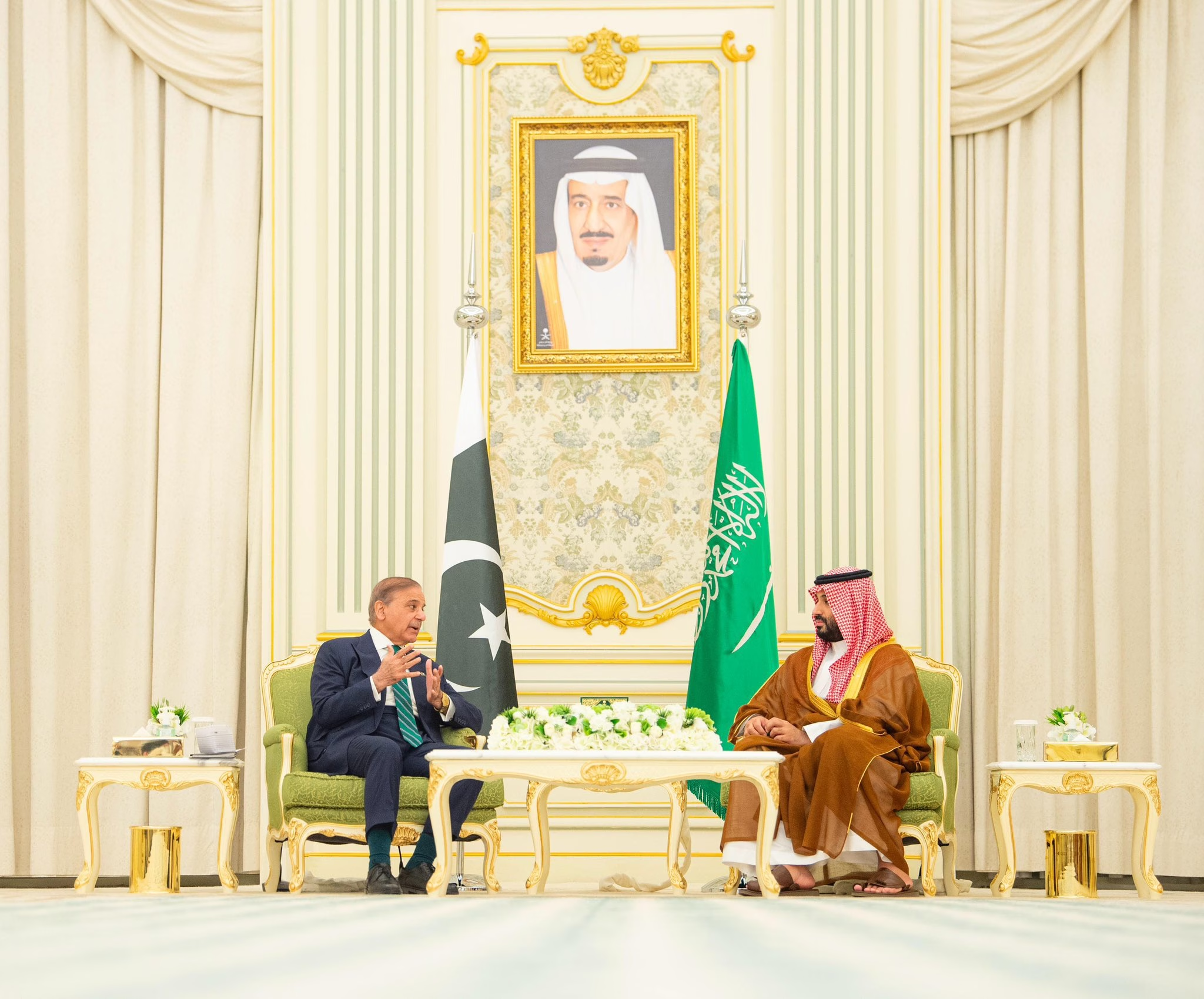Saudi Arabia and Pakistan have formalised a new mutual defence agreement, reinforcing a security relationship that has spanned decades and underscoring the growing concerns in the Gulf over shifting regional dynamics.
The agreement was signed in Riyadh on Wednesday by Saudi Crown Prince Mohammed bin Salman and Pakistani Prime Minister Shehbaz Sharif. In their joint statement, both governments emphasised the importance of the deal for regional stability.
“This agreement, which reflects the shared commitment of both nations to enhance their security and to achieving security and peace in the region and the world, aims to develop aspects of defence cooperation between the two countries and strengthen joint deterrence against any aggression,”
the statement read.
The pact specifies that any attack on either Saudi Arabia or Pakistan
“shall be considered an aggression against both,”
a significant elevation of their military obligations to one another.
The timing of the announcement is notable. It followed an extraordinary joint session of the Arab League and the Organisation of Islamic Cooperation (OIC), during which member states condemned an Israeli strike on Doha, Qatar’s capital. That attack, which reportedly targeted senior figures from Hamas, has fueled unease in Gulf capitals about the ability of the United States to act as a reliable guarantor of their security.
A senior Saudi official, speaking to Reuters, stressed that the agreement was not a reaction to one single event.
“This is a culmination of years of discussions. This is not a response to specific countries or specific events,”
the official explained. He further underlined Riyadh’s determination to maintain broad partnerships, adding,
“Saudi Arabia’s relationship with India is more robust than it has ever been. We will continue to grow this relationship and seek to contribute to regional peace whichever way we can.”
India, which engaged in a brief but intense four-day conflict with Pakistan in May after a deadly attack on tourists in Jammu and Kashmir, responded with caution. New Delhi said it would assess the long-term security impact of the Saudi-Pakistani defence pact.
Indian Foreign Ministry spokesman Randhir Jaiswal acknowledged that the pact had been under discussion for some time, posting on X that New Delhi would
“study the implications of this development for our national security as well as for regional and global stability.”
Saudi Arabia and Pakistan have nurtured military ties for more than fifty years. Thousands of Saudi officers have undergone training in Pakistan’s academies, and the two countries continue to engage in joint drills and programmes that reflect the strategic depth of their partnership.
The pact announced this week therefore does not create a new alliance but rather elevates an already longstanding relationship to a higher level of formal commitment. For Riyadh, it strengthens its deterrence posture at a time of heightened uncertainty, while for Islamabad it secures a powerful ally at a moment of ongoing regional friction.
Questions remain as to how the agreement will shape future alignments in South Asia and the Middle East, particularly in light of India’s delicate balancing act between its ties with Saudi Arabia and its adversarial history with Pakistan. Yet the message from both Riyadh and Islamabad is clear: their security is now bound together, and they intend to act collectively in the face of any external aggression.

















